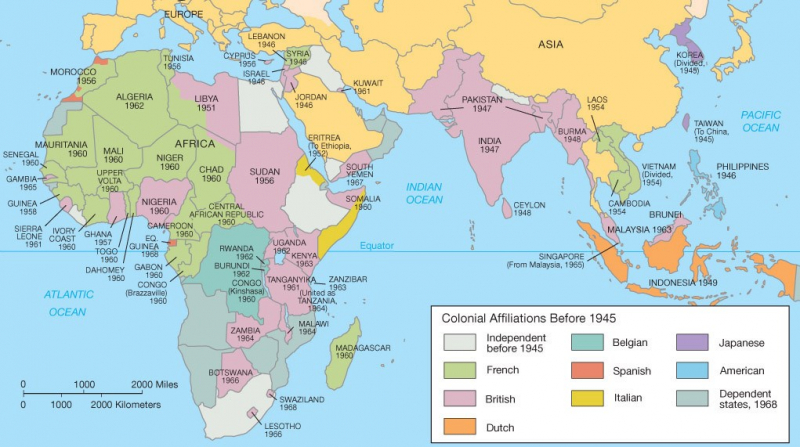Decolonization

Decolonization is the opposite of colonialism. Decolonization is the process by which colonies gain independence from the colonizing country. Decolonization was steady and peaceful in certain British colonies, which were mostly occupied by expatriates, but violent in others, where native rebellions were driven by nationalism.
Following World War II, European nations often lacked the financial and political assistance to defeat faraway rebellions; they also faced pressure from the new superpowers, the United States and the Soviet Union, both of which had taken anti-colonialist positions. Korea was liberated in 1945 as a result of Japan's defeat in the war. In 1946, the United States surrendered the Philippines. Britain withdrew India in 1947, Palestine in 1948, and Egypt in 1956; it left Africa in the 1950s and 1960s, numerous island protectorates in the 1970s and 1980s, and Hong Kong in 1997.
The French left Vietnam in 1954 and their North African territories by 1962. In the 1970s, Portugal gave up its African colonies, and Macau was handed to the Chinese. Similarly, Sub-Saharan African countries earned freedom despite being quite slow. Furthermore, the People's Republic of China grew to power in Southeast Asia. Likewise, the Communist Party of China won the Chinese Civil War in 1949.







